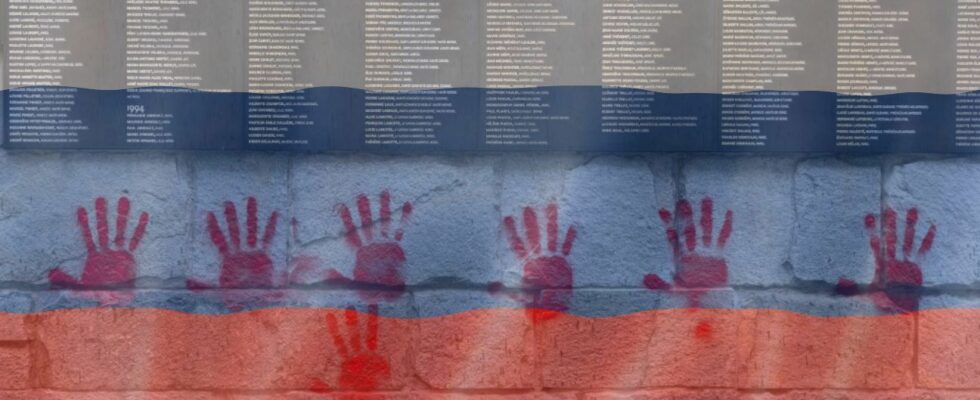The Russian trail is not just a cliché worthy of the Cold War. Concerning the “red hands” painted on the Holocaust memorial last week, this is even the main hypothesis of the investigators. “The modus operandi indicates that this is most likely a Kremlin operation,” says David Colon, associate professor of history at the IEP in Paris. “What is certain is that it would not be surprising,” adds Jean de Gliniasty, research director at Iris and former French ambassador to Moscow.
The prosecution confirmed this Wednesday that investigators were on the trail of three suspects fleeing abroad. According to franceinfo, these three men are Bulgarians. A camera filmed the scene, capturing their faces. The police then traced their telephone calls and found their tracks at the Bercy bus station, where these men were filmed boarding a bus heading to Brussels. A scenario “comparable to that of the Stars of David”, tagged on several Parisian buildings in November, recalls David Colon.
Stirring up tensions
Already at the time, the investigation had led the DGSI to trace a Moldovan network to the Russian security services, as revealed The world. The investigations then made it possible to place the Stars of David affair within a larger “destabilization” operation in NATO countries, allies of kyiv. “We are in a state of confrontation with Russia through Ukraine, which exasperates the Russians who are pulling out all the stops to weaken France,” explains Jean de Gliniasty. “They are on all fronts: Africa, New Caledonia…” adds the former diplomat.
The Israeli-Palestinian conflict is also the ideal terrain for sowing public opinion. “There were already constant tensions in French society between a strong Jewish minority and an even stronger Muslim minority,” says Jean de Gliniasty. And with the Hamas attack then the Israeli response, “anti-Semitic acts exploded,” recalls Carole Grimaud, researcher in Information and Communication Sciences at Aix-Marseille University and Russia analyst. From then on, “nothing could be easier to blow out the embers”.
“A form of provocation”
The authors also acted “in a very cheap, with a can of paint, Bulgarians who want to win a ticket, and the deal is in the bag,” she emphasizes. Enough to “cause great obvious emotion among the Jewish community” and play on the idea that “the French state is incapable of ensuring the security of its citizens”. Incidentally, the tensions thus generated between pro-Palestinians and supporters of Israel “put the government in difficulty even if only in the definition of its political line,” adds Jean de Gliniasty.
The immediate reactions, amplified by social networks, are enough to “sow doubt and create confusion”, points out David Colon. It doesn’t matter that the track is easily climbed, on the contrary. The “red hands” were “painted on a building under video surveillance, they know it very well, it is not hidden”, analyzes Carole Grimaud. She describes a form of agenda in two stages: first, the tensions in society during the discovery, then with the discovery of the real authors, “a form of provocation, by showing its power to cause harm”.
“A slow evil”
“Dmitri Medvedev clearly said that he wanted to help all anti-system parties, anything that can fuel chaos within democratic countries,” underlines David Colon.
However, the term “destabilization” is incorrect for Carole Grimaud: “this operation does not destabilize anything in the short term, they know that Russia will quickly be singled out. But it is a slow evil, an idea that is creeping into public opinion, that the government does not know how to protect its citizens, that there is anti-Semitism… The whole system is being targeted, by reinforcing some in their ideas, making others doubt the long term. »

